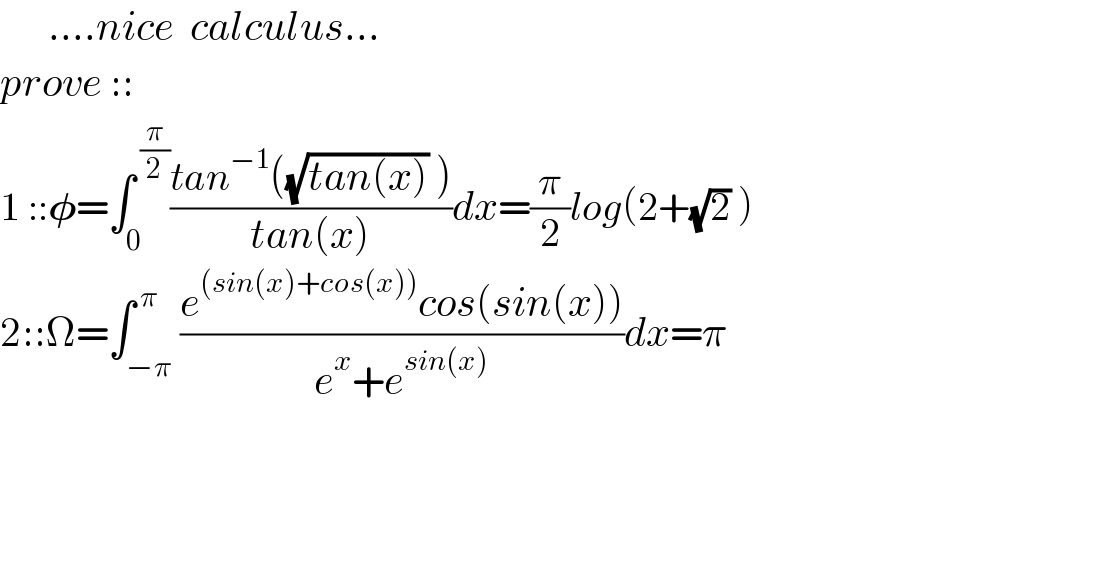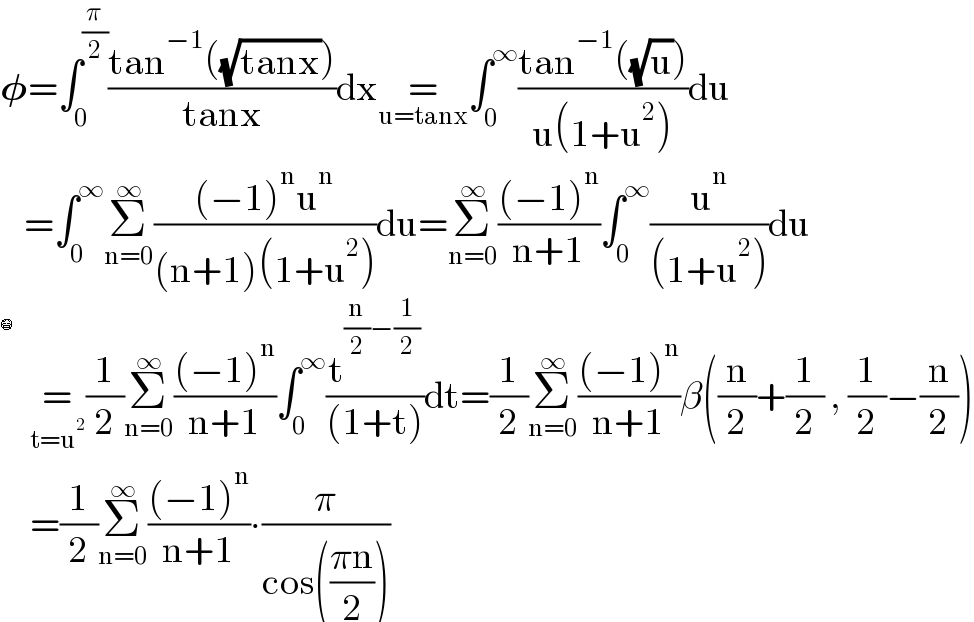Question Number 136295 by mnjuly1970 last updated on 20/Mar/21

Answered by mindispower last updated on 20/Mar/21
![Ω=Re∫_(−π) ^π (e^(cos(x)+sin(x)(+isin(x)) /(e^x +sin(x)))dx=Re(W) W=∫_(−π) ^π (e^(cos(x)+isin(x)) /(e^(x−sin(x)) +1))dx,z=cos(x)+isin(x),z^− ,conj(z) by semetry x→−x 2w=∫_(−π) ^π (e^z^− /(e^(−x+sin(x)) +1))+(e^z /(e^(x−sin(x)) +1))dx =∫_(−π) ^π ((e^z^− (e^(x−sin(x)) )+e^z )/(e^(x−sin(x)) +1))dx =∫_(−π) ^π e^z^− +∫_(−π) ^π ((e^z −e^z^− )/(e^(x−sin(x)) +1))dx 2w=A+B B∈{ia,a∈R} Ω=Re(w)=(1/2)Re∫_(−π) ^π e^z^− dx,x→−x,sin(−x)=−sin(x)⇒ =(1/2)Re∫_(−π) ^π e^z dx=(1/2)ReΣ_(n≥0) ∫_(−π) ^π (z^n /(n!))dx z=e^(ix) ⇔Ω=(1/2).ReΣ_(n≥0) ∫_(−π) ^π (e^(inx) /(n!))dx=(1/2)∫_(−π) ^π dx_(=C) +Σ_(n≥1) [_(−π) ^π (e^(inx) /(n!.n))]_(=D) x→e^(inx) is 2π periodic⇒D=0 Ω=(1/2).2π+0=π ∫_(−π) ^π ((e^(cos(x)+sin(x)) cos(sin(x))/(e^x +e^(sin(x)) ))dx=𝛑](https://www.tinkutara.com/question/Q136297.png)
Commented by mnjuly1970 last updated on 20/Mar/21

Commented by mindispower last updated on 20/Mar/21

Answered by Ar Brandon last updated on 20/Mar/21


Commented by mindispower last updated on 20/Mar/21

